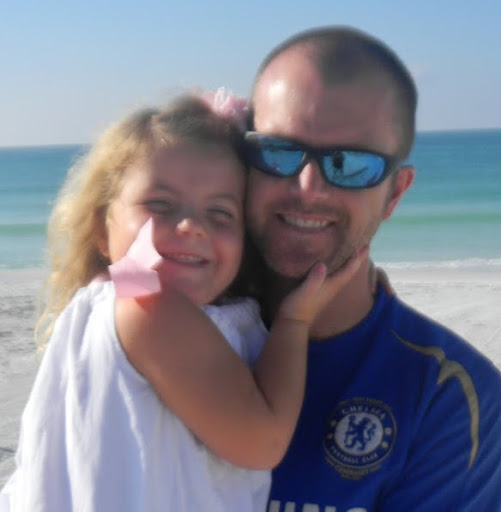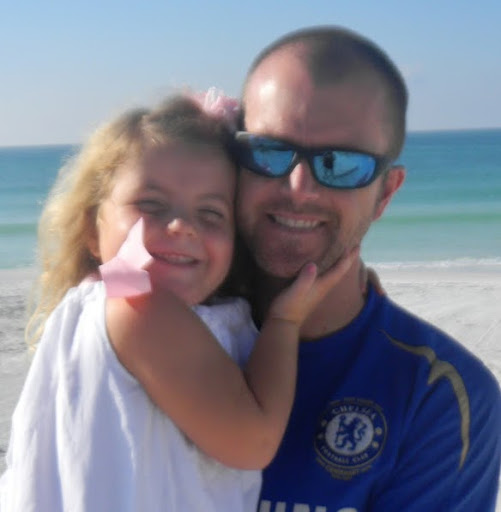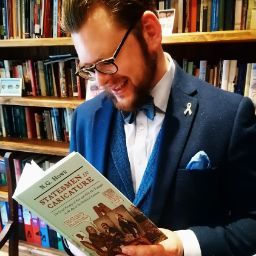Neil C Howe
age ~48
from Bartlesville, OK
- Also known as:
-
- Neil Christopher Howe
- Phone and address:
- 1458 Oakdale Dr, Bartlesville, OK 74006
Neil Howe Phones & Addresses
- 1458 Oakdale Dr, Bartlesville, OK 74006
- Coffeyville, KS
- Lubbock, TX
- Tulsa, OK
- Austin, TX
- Delray Beach, FL
Work
-
Company:Farmer
Education
-
School / High School:The School of the Art Institute of Chicago- Chicago, ILSep 2000
-
Specialities:Bachelor's
Wikipedia References

Neil Howe
Isbn (Books And Publications)



Generations: The History of America's Future, 1584 to 2069
view sourceAuthor
Neil Howe
ISBN #
0688081339

Generations: The History of America's Future, 1584 to 2069
view sourceAuthor
Neil Howe
ISBN #
0688119123

On Borrowed Time: How the Growth in Entitlement Spending Threatens America's Future
view sourceAuthor
Neil Howe
ISBN #
0765805758

Resumes

Chief Purchasing Officer
view sourceLocation:
1458 Oakdale Dr, Bartlesville, OK 74006
Industry:
Oil & Energy
Work:
Service & Technology Corporation
Chief Purchasing Officer
Service & Technology Corporation
Senior Purchasing Manager
Coffeyville Sektam Sep 2012 - 2014
Product Manager
Acme Foundry, Inc. Sep 2003 - Sep 2012
Purchasing
Enterprise Rent-A-Car Sep 2000 - Sep 2003
Assistant Manager
Chief Purchasing Officer
Service & Technology Corporation
Senior Purchasing Manager
Coffeyville Sektam Sep 2012 - 2014
Product Manager
Acme Foundry, Inc. Sep 2003 - Sep 2012
Purchasing
Enterprise Rent-A-Car Sep 2000 - Sep 2003
Assistant Manager
Education:
Pittsburg State University 1997 - 2000
Bachelors, Bachelor of Business Administration, Marketing, Management, Business Management, Business Field Kindley High School 1992 - 1995
Kansas State University
Bachelors, Bachelor of Business Administration, Marketing, Management, Business Management, Business Field Kindley High School 1992 - 1995
Kansas State University
Skills:
Lean Manufacturing
Manufacturing
Process Improvement
Supplier Development
Global Sourcing
Supply Management
Mrp
Customer Service
Supplier Evaluation
Materials Management
Purchase Management
Expert Communicator
Sales
Sales Management
Marketing
Forward Planning
Logistics
Epicor
As400 System
Strategic Planning
Iso
Internal Audit
Outsourcing
Webx
Engaging Public Speaker
Supply Chain
Supply Chain Management
Account Management
Six Sigma
Engineering
Training
Operations Management
Public Speaking
New Business Development
Team Building
Business Process Improvement
Purchasing
Inventory Management
Management
Leadership
Manufacturing
Process Improvement
Supplier Development
Global Sourcing
Supply Management
Mrp
Customer Service
Supplier Evaluation
Materials Management
Purchase Management
Expert Communicator
Sales
Sales Management
Marketing
Forward Planning
Logistics
Epicor
As400 System
Strategic Planning
Iso
Internal Audit
Outsourcing
Webx
Engaging Public Speaker
Supply Chain
Supply Chain Management
Account Management
Six Sigma
Engineering
Training
Operations Management
Public Speaking
New Business Development
Team Building
Business Process Improvement
Purchasing
Inventory Management
Management
Leadership
Languages:
English

Product Manager
view sourceLocation:
Coffeyville, KS
Industry:
Machinery
Work:
Coffeyville Sektam
Product Manager
Product Manager

Neil Howe
view sourceWork:
Farmer
Jan 1978 to 2000 Cedar Valley Spirits
Austin, TX
Mar 2007 to May 2013
Sales Rep Cedar Valley Spirits
Dripping Springs, TX
Sep 2007 to Apr 2013
CEO/ Founder/ Owner Cedar Valley Spirits
Dripping Springs, TX
May 2007 to Oct 2007
Sales Associate Dominoes Pizza
Dripping Springs, TX
Jun 2006 to Apr 2007
Delivery Driver Auto-detailer
Lakeway, TX
Jun 2004 to Jun 2006
Franchise Trainee Exhibit Construction
Chicago, IL
Aug 2003 to May 2004
Museum Employee Kellogg Biological Station
Hickory Corners, MI
Jun 2003 to Aug 2003
Research Assistant University of Chicago
Chicago, IL
Oct 2002 to Jan 2003
Office Assitant/ Web Development - Special Projects Lyceum Book Publising
Chicago, IL
Jun 2002 to Sep 2002
Office Manager Landscaper
Coralville, IA
Jun 1997 to 1999 Salad Prep
Iowa City, IA
Jan 1997 to Jan 1998 Hyde Park Veterinary Clinic
Chicago, IL
May 1994 to Apr 1996
Veterinary Assistant
Jan 1978 to 2000 Cedar Valley Spirits
Austin, TX
Mar 2007 to May 2013
Sales Rep Cedar Valley Spirits
Dripping Springs, TX
Sep 2007 to Apr 2013
CEO/ Founder/ Owner Cedar Valley Spirits
Dripping Springs, TX
May 2007 to Oct 2007
Sales Associate Dominoes Pizza
Dripping Springs, TX
Jun 2006 to Apr 2007
Delivery Driver Auto-detailer
Lakeway, TX
Jun 2004 to Jun 2006
Franchise Trainee Exhibit Construction
Chicago, IL
Aug 2003 to May 2004
Museum Employee Kellogg Biological Station
Hickory Corners, MI
Jun 2003 to Aug 2003
Research Assistant University of Chicago
Chicago, IL
Oct 2002 to Jan 2003
Office Assitant/ Web Development - Special Projects Lyceum Book Publising
Chicago, IL
Jun 2002 to Sep 2002
Office Manager Landscaper
Coralville, IA
Jun 1997 to 1999 Salad Prep
Iowa City, IA
Jan 1997 to Jan 1998 Hyde Park Veterinary Clinic
Chicago, IL
May 1994 to Apr 1996
Veterinary Assistant
Education:
The School of the Art Institute of Chicago
Chicago, IL
Sep 2000 to May 2003
Bachelor's The University of Iowa
Iowa City, IA
Sep 1996 to Sep 1999
Bachelor's in Fine Arts University of Chicago Laboratory Schools
1992 to 1996
design
Chicago, IL
Sep 2000 to May 2003
Bachelor's The University of Iowa
Iowa City, IA
Sep 1996 to Sep 1999
Bachelor's in Fine Arts University of Chicago Laboratory Schools
1992 to 1996
design

Neil D. Howe
view source
Neil Howe
view source
Neil Howe
view source
Neil Howe
view source
Neil Howe
view source
Neil Howe
view source
Neil Howe
view source
Neil Howes
view sourceNews

Delta's struggles with the airport lounge and the angst of the upper middle class in the age of 'elite overproduction,' explained
view source- The catch with Turchins theory is that his own type of complexity science takes on a pseudo-prophetic quality, similar in some ways to William Strauss and Neil Howes Fourth Turning. And Turchin has foreseen that the United States has reached a stage repeated in civilizations throughout history,
- Date: Jul 26, 2025
- Category: Business
- Source: Google

Gen Z will outnumber millennials within a year
view source- William Strauss and Neil Howe, American historians and authors who first coined the term millennials, use 1982 and 2004 as the cutoff years. The Pew Research Center defines those born in 1981 through 1996 as millennials, a time-frame also used by Ernst & Young in the survey Merriman wrote abou
- Date: Aug 21, 2018
- Category: Headlines
- Source: Google

Bitcoin trading a high-risk bet for investors and commerce
view source- Bitcoin: A Peer-to-Peer Electronic Cash System, that was distributed to a mailing list of cryptography experts. Neil Howe, head of the demography sector at Hedgeye Risk Management in Stamford, noted that there was something unusual about the person credited with inventing the bitcoin concept.
- Date: Dec 21, 2017
- Category: Business
- Source: Google

What Steve Bannon Wants You to Read
view source- Bannons 2015 documentary, Generation Zero, drew heavily on one of his favorite books, The Fourth Turning by William Strauss and Neil Howe, which explains a theory of history unfolding in 80-100 year cycles or turnings, the fourth and final stage of which is marked by periods of cataclysmic ch
- Date: Feb 07, 2017
- Category: World
- Source: Google

What Steve Bannon really wants
view source- What he is getting at here is based on the work of Neil Howe and William Strauss, two amateur historians who in the 1990s presented a generational theory of American history. The theory views American history through the lens of repeated cycles lasting roughly 80 years, about the length of a singl
- Date: Feb 03, 2017
- Category: U.S.
- Source: Google

Steve Bannon's obsession with a dark theory of history should be worrisome
view source- In the book, authors William Strauss and Neil Howe theorize that the history of a people moves in 80-to-100 year cycles called "saecula." The idea goes back to the ancient Greeks, who believed that at a given saeculum's end, there would come "ekpyrosis," a cataclysmic event that destroys the
- Date: Feb 02, 2017
- Category: U.S.
- Source: Google

Caught Between Gen X and the Millennials
view source- Neil Howe, who coined the term millennial in his 1991 book, Generations, chose 1982 as the start of the millennials because the children born that year were the first to come of age, or turn 18, in the new millennium. He also believes the early 80s marked a new generation because at the time, t
- Date: May 11, 2016
- Category: Business
- Source: Google

No, millennials didn't just surpass Baby Boomers
view source- The only problem, as I noted then, is that this shift had already occurred. If you use the definition set forward by demographer Neil Howe -- one of the the guys credited with inventing the name for the generation -- millennials were born between 1982 and 2004. Meaning that at the beginning of 2015
- Date: Apr 26, 2016
- Category: Business
- Source: Google
Classmates

Neil Howe
view sourceSchools:
Velva High School Velva ND 1966-1970

Velva High School, Velva,...
view sourceGraduates:
Neil Howe (1966-1970),
Tawnya Gefroh (1984-1988),
Michael Zietz (1997-2001),
Laurie Knutson (1967-1971)
Tawnya Gefroh (1984-1988),
Michael Zietz (1997-2001),
Laurie Knutson (1967-1971)
Myspace
Youtube
Googleplus

Neil Howe
Work:
O2
Education:
Dame Paulet School

Neil Howe
Work:
Www.digital-photography-bureau.com - Webmaster

Neil Howe

Neil Howe

Neil Howe

Neil Howe

Neil Howe

Neil Howe
Flickr
Get Report for Neil C Howe from Bartlesville, OK, age ~48














